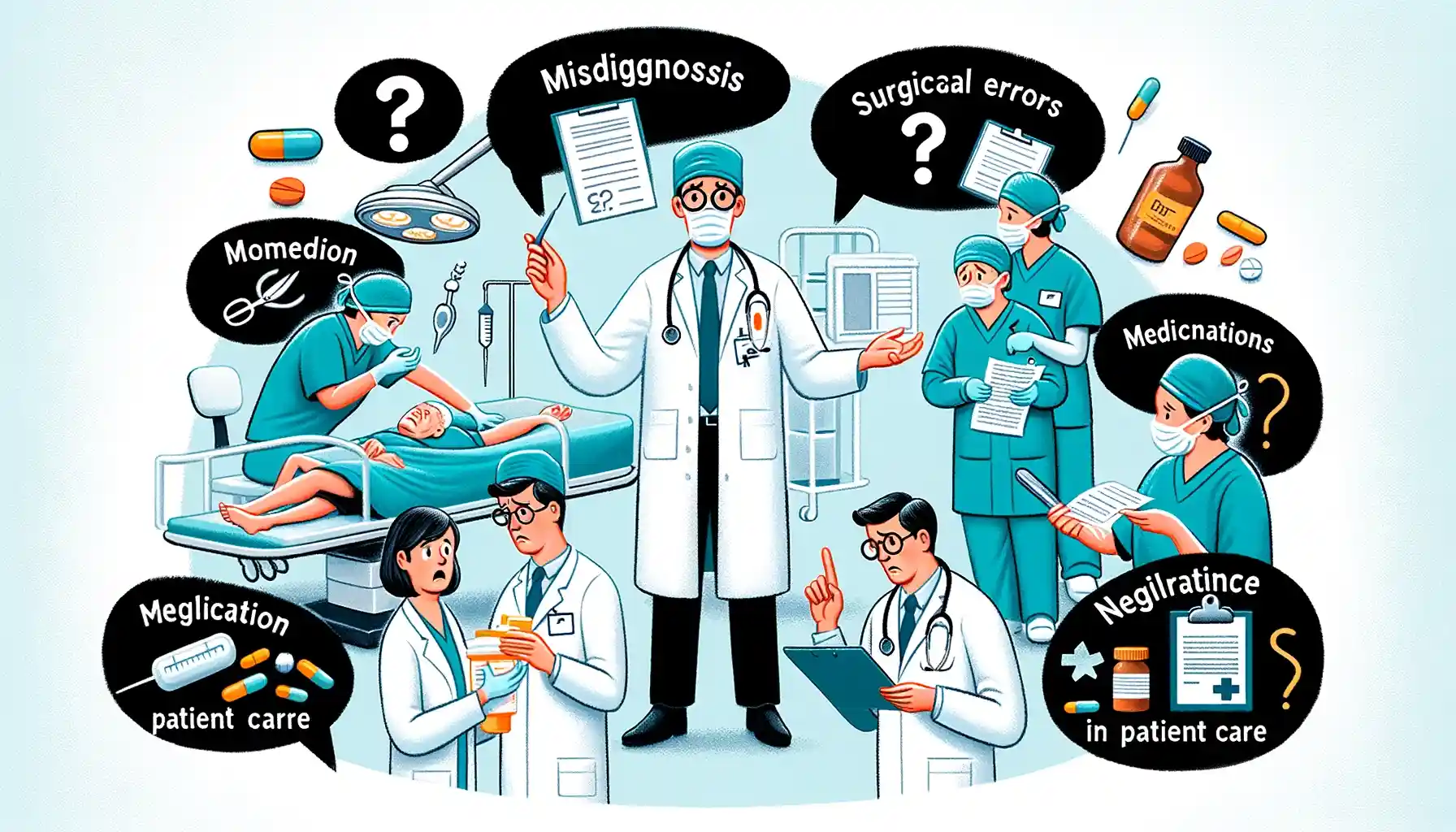When any kind of medical matter arises, most individuals turn to experienced healthcare professionals to provide guidance, treatment, and care regarding their specific prognosis. While more often than not everything will go just fine, that is unfortunately not always the case. Instances of medical malpractice are very common in the medical sphere, and the implications can be severe and sometimes life-threatening. Therefore, it is important to educate yourself about some common types of medical malpractice in the unfortunate event that you or a loved one suffers from the negligence or misconduct of a medical professional.
What Is Medical Malpractice?
As defined by the National Institutes of Health, medical malpractice is any negligent act or omission by a physician while treating a patient that deviates from accepted norms of practice in the medical community, thus causing an injury to the patient. There are a few criteria that must be present in order to constitute a medical malpractice claim. Under law, the medical malpractice claim must include the following:
- Failure to provide a proper standard of care
- An injury that resulted from negligence
- Damaging consequences that resulted from the injury
Wrongful Death
Wrongful death occurs when someone’s negligence or misconduct results in the death of another individual. Wrongful death is not limited to just medical malpractice, as other incidents, such as car accidents, can also lead to wrongful death. However, in a study conducted by John Hopkins Medicine, it was found that medical errors amount to more than 250,000 deaths per year in the United States, making it the third leading cause of death. These statistics do not bode very well for the medical community, and it leaves many patients worried that they may be the next unfortunate victim of a medical professional’s negligence.
If a loved one has died as a result of a medical professional’s negligence or misconduct, it is imperative that you speak with an experienced wrongful death attorney to learn about your legal rights and what compensatory damages you may be entitled to.
Misdiagnosis or Delayed Diagnosis
Diagnosing an individual with a medical condition is considered a significant moment in any individual’s medical journey. The timing and accuracy of a diagnosis is incredibly important, as the consequences can have substantial effects on an individual’s health. If a doctor inaccurately assesses an individual’s test results and symptoms, resulting in a misdiagnosis, a plethora of issues may result. For example, if a doctor misdiagnoses you for a specific medical condition and begins treating the condition as such, this could result in you taking unnecessary medication and will likely prolong the treatment for your actual disease. Additionally, misdiagnoses can be detrimental in that a doctor may claim you have a non life-threatening or serious condition while you are actually suffering from a disease that is far more serious. Not only can a patient suffer from a misdiagnosis, but they might also suffer from a delayed diagnosis. This occurs when a diagnosis is defined and discovered much later than it should have been. Perhaps, an earlier diagnosis could save someone’s life.
Surgical Errors
Medical surgeries require an incredible amount of precision, as one wrong move can be fatal. One common type of medical malpractice in surgeries is when medical professionals leave objects inside the patient. These objects, often referred to as retained surgical items, include forceps, surgical gauze, sponge, drill tips, and more. These items are supposed to be removed after the surgical procedure, and failure to do so can result in the need for hospital readmission, re-operation, X-rays, and more.
Prescribing the Wrong Medication or Dosage
Prescribing the incorrect medication or dosage to a patient can have adverse and sometimes fatal effects. If you are given the wrong medication, your original medical condition is likely not being treated at all and may worsen. It can also be devastating if a patient has allergies to a certain medication and is mistakenly prescribed it. Additionally, if you are prescribed the incorrect dosage for a medication, you may be either taking too much of the medication, which can be an overload for your body, or you may not be taking enough, which may have little to no effect on your medical condition. Furthermore, making sure you have been prescribed the right medication and right dosage is vital.
Failure to Follow-Up
Following up after any kind of medical procedure, hospital visit, or diagnosis, is an important part of any medical professional’s duties. While the patient also has a responsibility to take any necessary medication, show up for appointments, and follow the direction of medical professions, the responsibility is two-fold. If medical professionals fail to follow up with their patients, it has the potential to be considered negligence, especially if there is a lack of timeliness and care.
Looking Ahead
Medical professionals have a duty to properly treat, monitor, and assess any medical conditions that their patients may be experiencing. Unfortunately, not all medical professionals exercise extreme caution and care in doing so. Therefore, it is important that you are aware of the potential signs of medical malpractice in the unfortunate event that you are a victim of it.
